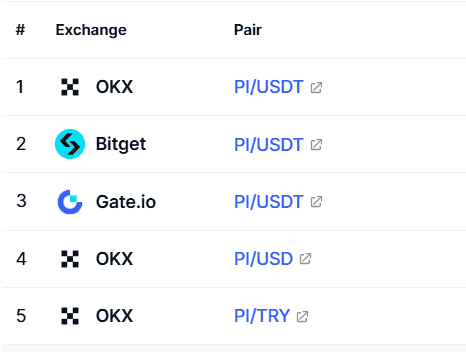South Korea’s Financial Services Commission has blocked at least 15 cryptocurrency exchanges, including KuCoin and MEXC, for operating in the country without permission from the authorities.
The apps of the affected exchanges have been pulled down from the Apple Store beginning April 11, following a request from the country’s Financial Intelligence Unit (FIU).
The FIU revealed that the affected platforms customised their interfaces in the Korean language specifically for Korean users, launched local marketing campaigns, and enabled transactions in Korean won—all without complying with local laws.
Blockchain and crypto are not new to the country. In 2020, some of the country’s biggest financial institutions such as Woori and NH Nonghyup planned to introduce digital assets services to their customers.
What does this mean for users?
New users will no longer be able to download the apps from the Apple Store, while existing users won’t receive future updates, reports say.
What the law says
Under South Korea’s anti-money laundering regulations, foreign crypto operators are required to register with the FIU. Any platform that fails to register will not only be banned from operating but may also face criminal charges, punishable by up to five years in prison or a fine of up to 50 million won (approximately $35,200).
In March 2025, South Korea’s FIU reaffirmed that it would not allow unregistered virtual asset service providers to operate within its jurisdiction. This includes targeting mobile apps and related websites.
The country says the move is part of a decisive effort to protect users and reduce exposure to threats such as hacking, data breaches, and the potential misuse of digital assets.
One of the key measures the FIU plans to enforce—even among registered platforms—is the separation of customer funds from operational accounts, in order to reduce exposure to fraud.
Without regulatory oversight, unregistered exchanges pose serious risks, particularly concerning consumer protection and financial security.
Authorities fear that such platforms could manipulate users, thereby exposing them to unnecessary risks and security threats.
Specifically, the guidelines state:
“Users are requested to check whether the virtual asset business operator they are transacting with is a reported business operator through the above website, and if it is an unreported business operator, take measures such as withdrawing their own virtual assets.”
It should be recalled that Google had also been directed to block access to some apps operating within South Korea’s jurisdiction for regulatory violations. Seventeen unregistered crypto apps were blocked during the enforcement sweep.
Effect on adoption
Despite these security measures, crypto adoption in the country continues to rise. For instance, by the end of March 2025, users of local crypto exchanges had grown to 16 million, within a country with a population of 51,717,590 as of the end of 2024, according to Worldometer statistics.


